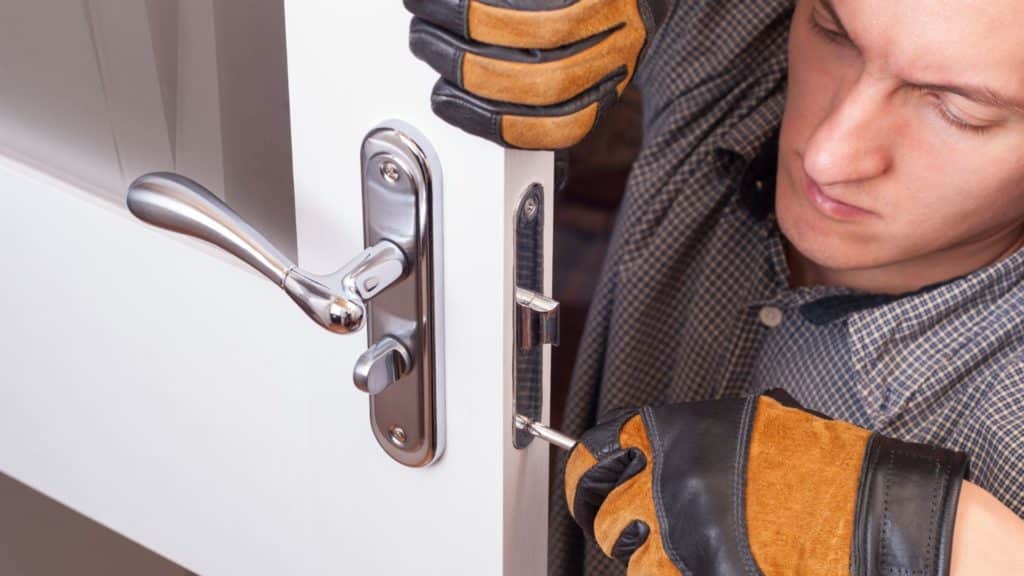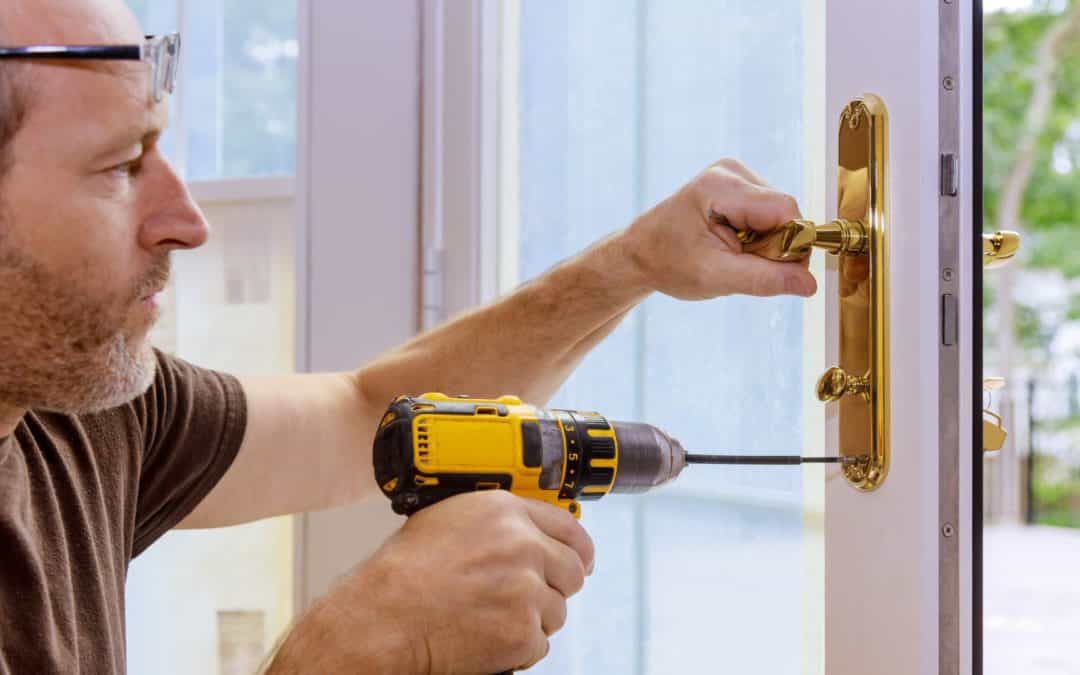Locksmith emergencies are often scary and frustrating. After all, we all want to feel safe and secure in our homes. When something goes wrong and the security measures around your house fail, it can send you into a panic. So what do you do? You should call the first locksmith that you can find, right? Well, you should be wary of scammers or “cowboy locksmiths.” Not every business you find on the internet is legitimate, and not everyone who calls themselves professionals truly know what they’re doing. Learn how to look out for scammers and hire a legitimate expert to fix your locks. Here’s how to avoid cowboy locksmiths:
4 Signs of a Cowboy Locksmith
It’s better to avoid cowboy locksmiths altogether, but sometimes you may end up speaking with one even if you’re cautious. To avoid losing your money to scammers, keep an eye out for suspicious behavior from a potential locksmith. Look out for these 5 signs:
1. Quote Initial Low Prices
Scammers want to lure you into accepting their services. Thus, they always try to bait you with suspiciously low quotes to get your job done. Some quote as little as $15 so you’ll call them to your home. If a price seems too good to be true, it probably is. Do some research to find estimates for what your job will cost, and if a locksmith quotes you a significant amount less, call another business for a second quote.
2. Threaten You For Failure to Comply With Outrageous Payments
Once a cowboy locksmith arrives, they’ll likely start jacking up their prices. They’ll raise it little by little as they “fix” the problem. Then, before you know it, your bill is suddenly ten times higher than the initial quote. If you bring this up, cowboy locksmiths often resort to threats for failure to pay. They’ll threaten to keep you locked out of your home, to take your lock with them, etc. Cowboy locksmiths have been known to pull this tactic on vulnerable homeowners like single women, the elderly, and even the blind! A true locksmith will never threaten you in any way. It’s both wrong and unprofessional. If your locksmith starts pulling this kind of stunt, you can be sure they’re a cowboy.
3. Pull Out a Drill to Remove Your Lock
If your locksmith’s first tool of choice is a drill, that’s a red flag. Trained locksmiths almost never have to resort to drilling your lock because they are trained to pick even the toughest ones. The only reasons a locksmith would drill a residential lock is if they don’t know what they’re doing or they’re planning to destroy it so they can hold the threat of not fixing it over your head. Without putting yourself in danger, try to take a stand against drilling your locks and ask them to hold off on the job. If the locksmith starts to threaten you, it’s best to call the police.
4. Arrive in an Unmarked Car
Most legitimate locksmiths drive cars with the company logo. While this isn’t always the case, it’s important to be on the alert if your locksmith arrives in an unmarked car. You should keep an eye out for other suspicious signs to determine whether you’ve hired a real professional.
5. Do Not Answer the Phone With the Company Name
Be wary of locksmiths who answer the phone with generic phrases such as “Hello, local locksmith services.” Professionals should answer the phone and state the name of their business. If your locksmith answers with a vague phrase like this, ask the business name and see if it matches the location you’re trying to call.

4 Tips On How to Avoid Cowboy Locksmiths
Okay, now you know the signs that betray a cowboy locksmith. But how do you avoid losing your money or calling them in the first place? The following tips will help prevent you from getting scammed:
1. Do Not Rely on Paid Ads
Anyone can get a paid ad on Google. Anyone. Let that sink in. Scammers could pose anything: a locksmith, doctor, veterinarian, etc. Thus, you should never hire any locksmith off a paid ad because anyone could have placed it. Instead, search through various locksmiths’ websites to find a reputable professional.
2. Check Google Reviews
Thankfully, it’s pretty easy to find out what experience other people have had with a company. All you have to do is search the business’s name on Google and read what people have said. If a company has no reviews or mostly negative reviews, steer clear. It could be a scam company or just a poorly-quality locksmith.
3. Ask Questions
A locksmith should be able to answer any questions you have. Ask them about how long they’ve been in business, where their company is located, how they could fix your problem, etc. When locksmiths dodge questions or give vague answers, be on your guard.
4. Request Identification and Documentation
Okay, let’s say you followed these steps to the best of your ability and hired someone you believe to be a professional locksmith. That’s great. But don’t stop there. When your locksmith arrives, ask for proper identification and licensing documentation. And remember, a good locksmith will do the same to you; reputable professionals always check their clients’ identities so they know they’re helping the right person.
Contact ASAP Locksmith For Professional Assistance!
Are you in need of emergency locksmith services? We’ve got you covered. Our licensed and insured professionals can help you with any job, and we’re available 24/7. Call the right people when you’re experiencing safety and security issues. Contact ASAP Locksmith today!

